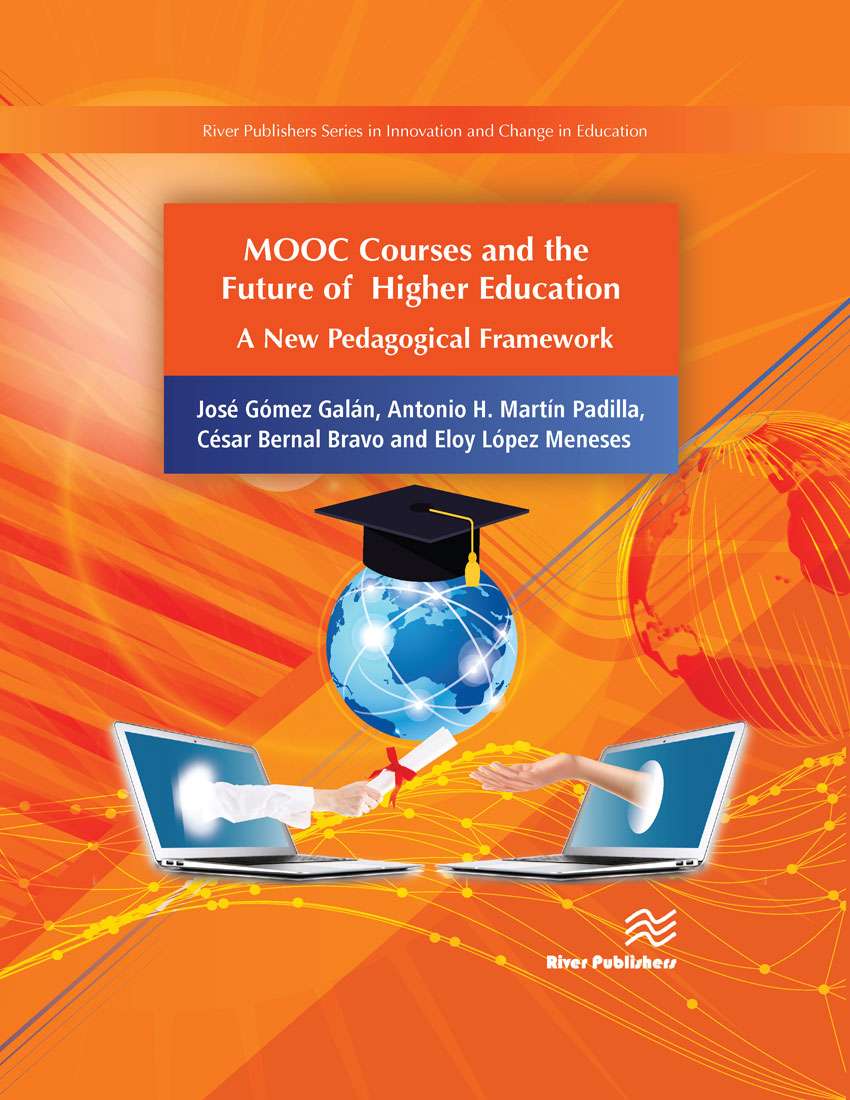Innovation and Change in Education - Cross-cultural Perspective
MOOC Courses and the Future of Higher Education
A New Pedagogical Framework
Authors:
José Gómez Galán, Metropolitan University, Puerto Rico, USA and Catholic University of Avila, Spain
Antonio H. Martín Padilla, Pablo de Olavide University, Spain
César Bernal Bravo, King Juan Carlos University, Spain and University of Almeria, Spain
Eloy López Meneses, Pablo de Olavide University, Spain
ISBN: 9788770220620 e-ISBN: 9788770220613
Available: February 2019
During the last decades, our society is witnessing an authentic revolution that, in a dizzying manner has deeply influenced, modified, and transformed the way of life of human beings. This constant and unstoppable revolution is transmuting all areas of our life: social, cultural, personal, labor, economic, training, etc. This new society is characterized by a high generation of knowledge and the constant and fluid processing of information.
In this macro-context, the MOOC phenomenon emerged. MOOC (Massive Open Online Courses) courses are based on the principles of massive, free access to all materials and resources offered online. This new didactic path can be constituted in an innovative techno-social tendency, especially oriented in the panorama of Higher Education to stimulate university improvement, open opportunities at the same time for education and training or, simply, derive towards a new business model for the universities. In addition to being an entry point for the popularization of science and knowledge, the future possibilities are enormous and are being studied in all their various dimensions. Many initiatives as a result have been developed to implement this new form of education.
MOOC Courses and the Future of Higher Education presents the latest research theories and current examples of MOOC courses practices in Higher Education. The chapters represent an extensive assortment of interpretations and practices examples of MOOC courses, across areas as varied as teaching methodologies, instructional innovations, educational technology, etc. This work is structured in three sections, the first one covers the university institution in the knowledge society, the second analyzes the MOOC training proposals, and the third discusses the future role of MOOCs.
Technical topics discussed in the book include:
In this macro-context, the MOOC phenomenon emerged. MOOC (Massive Open Online Courses) courses are based on the principles of massive, free access to all materials and resources offered online. This new didactic path can be constituted in an innovative techno-social tendency, especially oriented in the panorama of Higher Education to stimulate university improvement, open opportunities at the same time for education and training or, simply, derive towards a new business model for the universities. In addition to being an entry point for the popularization of science and knowledge, the future possibilities are enormous and are being studied in all their various dimensions. Many initiatives as a result have been developed to implement this new form of education.
MOOC Courses and the Future of Higher Education presents the latest research theories and current examples of MOOC courses practices in Higher Education. The chapters represent an extensive assortment of interpretations and practices examples of MOOC courses, across areas as varied as teaching methodologies, instructional innovations, educational technology, etc. This work is structured in three sections, the first one covers the university institution in the knowledge society, the second analyzes the MOOC training proposals, and the third discusses the future role of MOOCs.
Technical topics discussed in the book include:
- The Virtualization of Teaching in Higher Education
- Training and Professional Development at the e-University
- Taxonomy of MOOCs
- MOOC: Strengths and Weaknesses
- MOOCs and the Scientific Community: Challenges and Innovation
- MOOC Platforms
- Directory of MOOC Resources
- MOOC: Reflections of the Future
MOOC, e-Learning, Higher Education, Educational Innovation, Teacher Training, Educational Methodology, Knowledge Society
